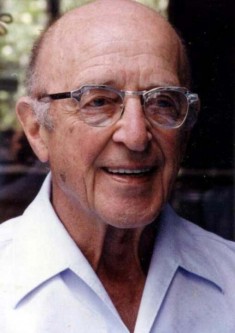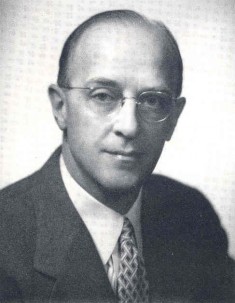| Carl Rogers | |
|---|---|
 |
|
| Psychologist | |
| Born | Jan. 8, 1902 Oak Park, Illinois, U.S. |
| Died | Feb. 4, 1987 (at age 85) San Diego, California, U.S. |
| Nationality | American |
Carl Rogers was a famous American psychologist and was among the founders of humanistic approach to psychology. He was considered to be one of the pioneers of psychotherapy research.
Early Life
Carl was born on January 8, 1902, in Chicago, Illinois. His father, Walter Rogers, was a civil engineer while his mother, Julia, was a homemaker and a devout Christian. Carl was the fourth of the six children that his parents had.
Educational Years
Rogers was a bright child and he started reading pretty early. From his early childhood, Carl was very disciplined and independent and he was very sincere about his studies. He started appreciating the usage scientific method in the practical world at an early age.
After his high school education, Carl went to the University of Wisconsin and his first career choice was working in agriculture, followed by history, then religion. After being on a trip to China at the age of 20 for an International Christian Conference, Carl started doubting his religious beliefs and convictions.
He decided to change his choice of career and enrolled himself at the Union Theological Seminary. After two years at seminary, Carl left seminary and attended the Teacher’s College at Columbia University and completed his M.A. in 1928 followed by his Ph.D. in 1931. For his doctoral work, Carl engaged himself in child study.
Professional Life
In 1930, Carl served as the director of the Society for Prevention of Cruelty to Children, which was in Rochester, New York. Between 1935 and 1940, he worked at the University of Rochester as a lecturer. In 1940, Carl joined Ohio State University as a professor of clinical psychology. Soon after, he was invited by the University of Chicago to set up a counseling center.
In 1947, Carl Rogers was elected as the President of the American Psychological Association and he later became the president of the American Academy of Psychotherapists. From 1957 to 1963, Carl taught at the University of Wisconsin. During his career, Carl Rogers wrote many standout books on psychology. Along with Abraham Maslow, Carl pioneered humanistic psychology movement, which reached its peak during the 1960s.
Personal Life
Carl Rogers was married to Helen Elliot, whom he married against the wishes of his parents in 1924. Together they had two children, David and Natalie. Helen and Carl were together until 1979 when Helen passed away. Carl Rogers had a healthy and active work life until the age of 85. He fell in 1987, which resulted in a pelvic fracture. He had a successful operation but after that his pancreas failed and he died a few days after that.
Theories and Contributions to Psychology
Throughout his work, Carl Roger dedicated himself to humanistic psychology, and he is well-known for his theory of personality development. Roger was one of the founders of humanistic psychology, which emphasizes a person-to-person approach rather than the traditional therapist-patient relationship.
 His client-centered therapy, also known as the theory of personality development, was designed around the client. The theory emphasized the importance of self-actualizing tendency in forming a self-concept. According to Rogers, each person has within them the inherent tendency to grow and develop. He believed that every person can achieve their goals, wishes and desires in life. This inherent tendency influences the self-esteem and self-actualization.
His client-centered therapy, also known as the theory of personality development, was designed around the client. The theory emphasized the importance of self-actualizing tendency in forming a self-concept. According to Rogers, each person has within them the inherent tendency to grow and develop. He believed that every person can achieve their goals, wishes and desires in life. This inherent tendency influences the self-esteem and self-actualization.
According to him, the experience of being understood and valued gives one the freedom to grow. In order to do that, the therapist must express complete acceptance of the patient. Rogers said that his can be best achieved through the method of reflection.
Throughout the therapy session, the patient is allowed to direct the course of the session, and the therapist only makes small interruptive remarks just to identify certain factors. According to him, he is a facilitator who creates an environment for learning and growth. This unique approach of Rogers found wide applications in various domains, such as psychotherapy and counseling, education, organizations, and other group settings.
Another fascinating study of Carl was on the idea of feedback. He discovered that there are five ways in which a person gives his feedback. These include evaluative, interpretive, supportive, probing and understanding.
Publications and Awards
Carl Rogers wrote 16 books and more than 200 articles and received several awards, including the Distinguished Scientific Contribution Award of the American Psychological Association. In 1972, he became the only person to receive that award along with the association’s Distinguished Professional Contribution Award. He was also given the Nicholas Murray Butler Silver Medal from Columbia University in 1955. He achieved his honorary degrees from different universities all across the world.